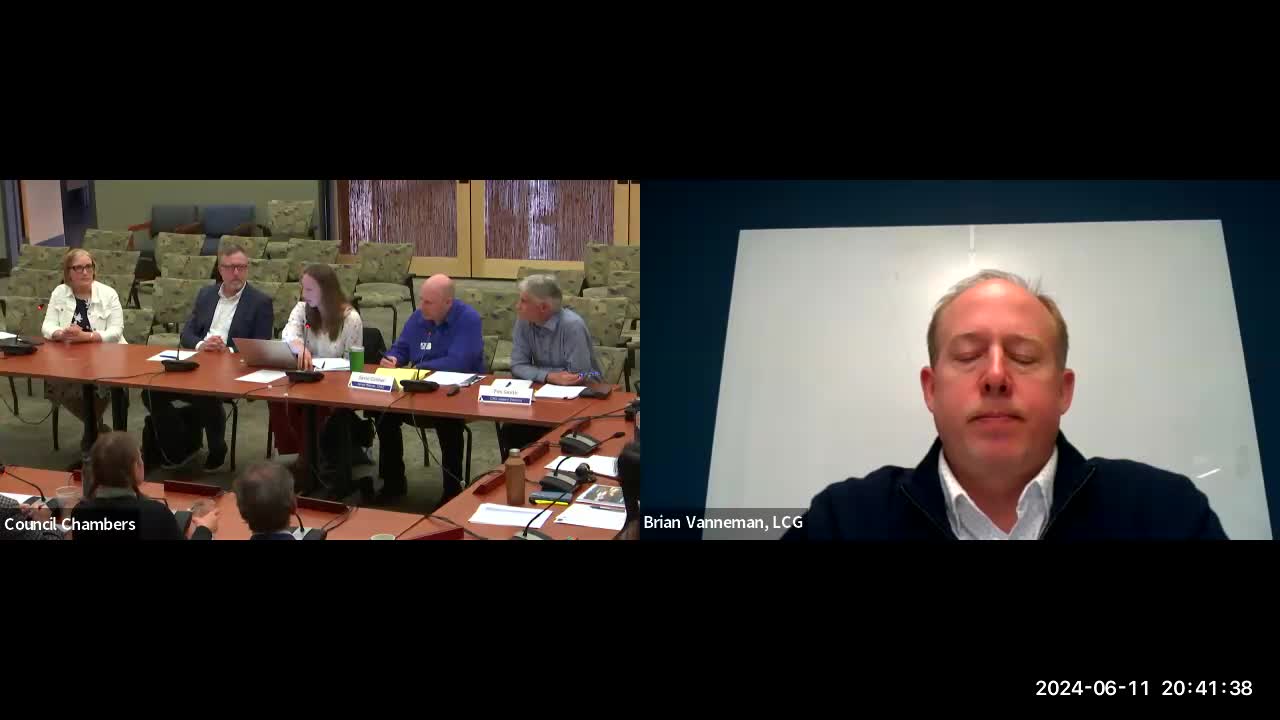Olympia plans bold changes to boost local development
June 11, 2024 | Olympia, Thurston County, Washington

This article was created by AI summarizing key points discussed. AI makes mistakes, so for full details and context, please refer to the video of the full meeting. Please report any errors so we can fix them. Report an error »

During a recent government meeting, officials discussed critical transportation and housing development strategies for the city of Olympia. A significant focus was placed on the need for improved mobility in high-traffic areas, particularly around the mall and the intersections of Cooper Point and Black Lake. The Washington State Department of Transportation (WSDOT) emphasized its commitment to maintaining a high level of service while exploring options for traffic filtering and potential roundabouts to alleviate congestion.
The conversation also highlighted the upcoming quarter study on Black Lake Boulevard, which will assess the operational efficiency of the intersection and consider design modifications. Additionally, the West Olympia Access Project, set for design and right-of-way acquisition beyond 2029, presents an opportunity to revisit original design assumptions and improve traffic flow.
Housing development emerged as another key topic, with a call for more support for small, local developers rather than large corporations. Officials acknowledged the barriers faced by first-time developers and expressed a desire to remove these obstacles to foster a more diverse development landscape. The discussion included the potential for city-owned parcels to be developed by local businesses, ensuring that affordable housing remains a priority.
Concerns were raised about the environmental impact of new developments, particularly regarding forested areas. Officials confirmed that provisions exist to allow for bicycle and pedestrian pathways instead of traditional roadways in certain circumstances, which could help preserve green spaces.
Lastly, the meeting addressed the Multifamily Tax Exemption (MFTE) program, with officials committing to monitor its effectiveness in promoting affordable housing. The planning commission's recommendations for mixed-use housing were acknowledged, reflecting community feedback on the importance of inclusivity in development to avoid income segregation.
Overall, the meeting underscored a collaborative approach to addressing transportation and housing challenges, with an emphasis on sustainability and community involvement.
The conversation also highlighted the upcoming quarter study on Black Lake Boulevard, which will assess the operational efficiency of the intersection and consider design modifications. Additionally, the West Olympia Access Project, set for design and right-of-way acquisition beyond 2029, presents an opportunity to revisit original design assumptions and improve traffic flow.
Housing development emerged as another key topic, with a call for more support for small, local developers rather than large corporations. Officials acknowledged the barriers faced by first-time developers and expressed a desire to remove these obstacles to foster a more diverse development landscape. The discussion included the potential for city-owned parcels to be developed by local businesses, ensuring that affordable housing remains a priority.
Concerns were raised about the environmental impact of new developments, particularly regarding forested areas. Officials confirmed that provisions exist to allow for bicycle and pedestrian pathways instead of traditional roadways in certain circumstances, which could help preserve green spaces.
Lastly, the meeting addressed the Multifamily Tax Exemption (MFTE) program, with officials committing to monitor its effectiveness in promoting affordable housing. The planning commission's recommendations for mixed-use housing were acknowledged, reflecting community feedback on the importance of inclusivity in development to avoid income segregation.
Overall, the meeting underscored a collaborative approach to addressing transportation and housing challenges, with an emphasis on sustainability and community involvement.
View full meeting
This article is based on a recent meeting—watch the full video and explore the complete transcript for deeper insights into the discussion.
View full meeting
